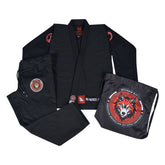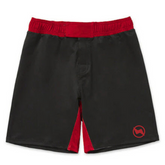Martial Arts Gym Hygiene: Essential Rules for Clean Training
Training in a martial arts gym, especially one focused on Brazilian Jiu Jitsu, brings tremendous benefits. These benefits include better fitness, discipline, camaraderie, self-defense skills, humility. But such close-contact sport also comes with responsibilities. Cleanliness is not optional. But it is essential for health, safety, and respect. When hygiene is neglected, risks increase: skin infections, unpleasant odors, illness, even injuries.
This guide brings together the essential hygiene rules every practitioner should know. These rules are underpinned by expertise and real-world experience. It does not matter if you are a white belt just starting, or a seasoned BJJ black belt. Caring for your Gi, your body, and your gym environment makes a huge difference.
1. Why Hygiene Matters in Brazilian Jiu Jitsu
a) Infection Prevention & Health
Skin-to-skin contact is inherent in BJJ: grappling, rolling, sweeps, submissions. This creates ideal conditions for bacteria, fungi, viruses. Without good hygiene, athletes risk ringworm, staph infections (MRSA), fungal infections such as athlete’s foot, impetigo, etc.
Shared surfaces i.e. mats, restroom floors, changing rooms can harbor pathogens. A sweaty Gi left untreated is a breeding ground for microbes.
b) Respect & Gym Culture
Cleanliness fosters respect among training partners. Nobody wants to roll with someone whose Gi smells, or who has not showered post-workout. Good hygiene is part of martial values: integrity, discipline.
c) Performance & Comfort
A clean, well-maintained Gi grips better, moves better. Hygiene affects grip, glove use, wrist wraps, etc. Smelly gear or body can distract, reduce confidence, affect effort.
d) Gym Reputation & Retention
Gyms that enforce high hygiene standards tend to retain members, avoid legal issues, and foster trust. New students will compare first impressions: odor, dirty mats, mold, bad changing rooms.
2. Key Body Hygiene Practices
-
Rule 1: Shower Before & After Training
Pre-training: A quick shower helps remove outside bacteria, sweat, body oils. Clean skin reduces irritation under the Gi and prevents spreading microbes.
Post-training: Shower immediately to rinse off sweat and grime. Dry thoroughly, especially skin folds and nails.
-
Rule 2: Keep Nails Trimmed and Clean
Fingernails and toenails must be short and clean to avoid scratches and bacteria buildup.
-
Rule 3: Hair Hygiene
Wash hair regularly. Tie long hair back. Keep beards neat and clean.
-
Rule 4: Use Clean Under-Gear
Always wear clean rash guards, spats, and under-shorts. Do not reuse unwashed gear.
-
Rule 5: Overall Clothing Hygiene
Wash Gi, belt, and gear after each use. Rotate between multiple Gis if possible.
-
Rule 6: Avoid Training When Sick or Injured
Stay home if you have infections, skin conditions, or open wounds.
3. Proper Care of Your BJJ Gi and Gear
- Rule 7: Washing Your Gi Properly – Use mild detergent, avoid fabric softeners, wash inside out.
- Rule 8: Drying with Care – Air-dry in shade, never leave in gym bags.
- Rule 9: Maintaining Other Gear – Wash rash guards, spats, gloves, and mouth guards regularly.
4. Mat and Gym Cleanliness: Shared Space Rules
- Rule 10: Mat Cleaning Routines – Sanitize mats daily and spot-clean during class.
- Rule 11: Shoes Off Mat – Never step on mats with outside shoes.
- Rule 12: Clean Training Area Floor & Surroundings – Regularly clean changing rooms and corners.
- Rule 13: Air Quality & Ventilation – Ensure proper airflow to prevent mold.
5. Injury & Skin Care Protocols
- Rule 14: Inspect skin before training.
- Rule 15: Treat cuts immediately with antiseptic and bandages.
- Rule 16: Disinfect gear after contact with blood or wounds.
- Rule 17: Wash feet and face thoroughly; use antifungal measures if needed.
6. Hygiene Etiquette During Training Sessions
- Rule 18: Fresh Gi & clean gear every session.
- Rule 19: Use personal towels for sweat.
- Rule 20: No gum or food on mats.
- Rule 21: Allow hygiene breaks if necessary.
- Rule 22: Communicate respectfully about hygiene issues.
7. Locker Room, Showers, and Equipment Rooms
- Rule 23: Store gear in ventilated bags or lockers.
- Rule 24: Use only clean towels and linens.
- Rule 25: Maintain shower facilities properly.
- Rule 26: Store shoes away from mats.
8. What Leaders, Coaches, and Gym Owners Can Do
- Rule 27: Establish clear hygiene policies.
- Rule 28: Provide adequate cleaning supplies.
- Rule 29: Conduct regular inspections & audits.
- Rule 30: Educate students and lead by example.
9. FAQs: Common Questions & Practical Solutions
- Q1: How often should I wash my BJJ Gi? – After every training session.
- Q2: Can I use fabric softener? – Avoid it; use mild detergent.
- Q3: Best way to dry a Gi? – Air dry in a ventilated area.
- Q4: How to treat ringworm or fungal infection? – Seek medical advice and disinfect gear.
- Q5: Can I train through skin irritations? – Only if non-contagious.
10. Summary & Core Takeaways
- Shower pre- and post-training; keep nails and hair clean.
- Wash Gi and gear after every use; dry properly.
- Keep mats, showers, and shared areas disinfected.
- Do not train when contagious or with open wounds.
- Gym owners must enforce and model good hygiene practices.
When all members, coaches, and gym owners embrace hygiene, everyone wins: fewer infections, better performances, higher morale, and stronger reputations.
Final Thoughts
Brazilian Jiu Jitsu is more than a martial art. It is a community of commitment. The Gi is not just uniform, but your second skin during training. Good hygiene protects you, your partners, and the legacy of your gym. Clean ears, clean feet, clean Gi — each small act adds up.
If you care for hygiene, you care for the practice. Be clean, be respectful, roll safe.





